Canada on the World Stage
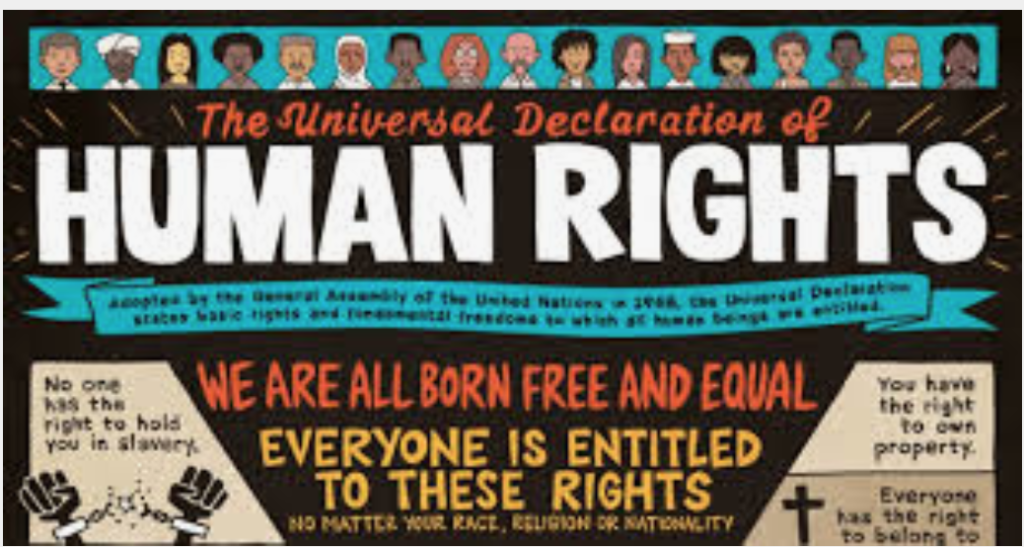
There is more Good News in the World than Bad
Around the world, Canada is viewed as a respected middle power. However, there have been times Canadians have punched well above this level and have made some very significant contributions to the welfare of humankind. Many of these people are unknown to most Canadians. Here are a few of them:
LESTER B. PEARSON
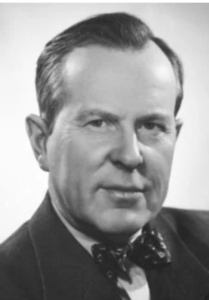
The best-known Canadian contributor in the area of peace and international affairs is former Prime Minister Lester B. Pearson who came up with the idea of sending U.N. troops (peacekeepers) into troubled areas to keep peace.
This idea stemmed the conflict in the Suez in 1956 but peacekeeping forces have also been used ever since in dozens and dozens of conflict situations. There are now over 81,000 full-time personnel working for the U.N. in a peacekeeping role.
JOHN HUMPHREY
Few people, however, know of the contribution made by Canadian diplomat and lawyer John Humphrey. He was the primary drafter of the Universal Declaration of Human Rights (U.D.H.R.).
Eleanor Roosevelt called it the international Magna Carta of all humankind. The U.D.H.R. was originally published in six languages and is now in over 500.
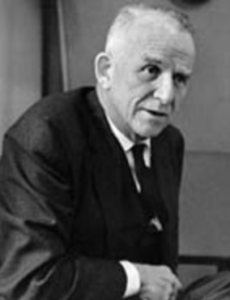
This declaration is a code of moral principles, behaviour and rights for all humans. Regardless of race, colour, sex, religion, social order or birth, every human being has equal rights before the law, for education, protection against arbitrary arrest, the right of privacy and the right to go from and return to your country.
Human Rights are central in most agreements and are the foundation of international law. There are 30 articles in total. Here is the link to the declaration: https://www.un.org/en/about-us/universal-declaration-of-human-rights
The U.D.H.R. has led to many countries creating their own bills of rights, including the Canadian Charter of Rights and Freedoms. There is also the U.N.’s Universal Declaration on the Rights of Indigenous Peoples, signed some 15 years ago.
Sadly, the U.D.H.R. is not followed by everyone, but is a benchmark for the individual rights of people around the world.
John Humphrey’s early experiences had a major impact on the wording of the declaration. He lost both parents to cancer as a young boy. He also lost an arm in an accident and was continually teased at school. In spite of this, he entered University at 15.
He studied law, worked for the U.N. for 20 years, and then became a professor. Following this, he worked in the Canadian civil service. He participated in many human rights causes, including the status of women.
Of note, Canada’s Louise Arbour was the U.N. HIGH COMMISSIONER for HUMAN RIGHTS from 2004-2008.
PAUL MARTIN SR.
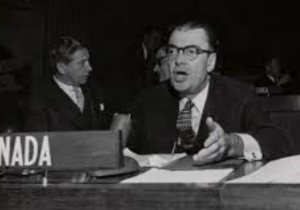
Another little known but major contributor to worldwide human welfare is PAUL MARTIN Sr.
Paul had polio at the age of four. He recovered but was permanently blinded in one eye and had only partial mobility in one arm.
He went on to study law at Harvard, then went into politics and served Canada as an M.P. for 39 years. He later became a senator and Canada’s High Commissioner to the U.K. He was a senior cabinet minister for many years and a leading founder of Canada’s social welfare system including Medicare.
He was also involved with the U.N. in its infancy. The U.N. initially had 51 members. Martin fought tirelessly against fierce opposition to open up the membership to all nations.
He believed it was imperative and morally responsible that all nations have a place and a forum in this new worldwide institution. He won. There are now 193 members.
The impact of this may not seem readily apparent, however. As a result of his views and tenacity, membership was opened up and all countries now have a forum to speak and have access to the various U.N. agencies including UNICEF, U.N.H.C.R. (United Nations High Commissioner for Refugees), the World Food Programme and the World Health Organization. This has affected millions – no billions of people.
While never becoming Prime Minister, his son Paul Martin Jr. did.
PAUL MARTIN JR.
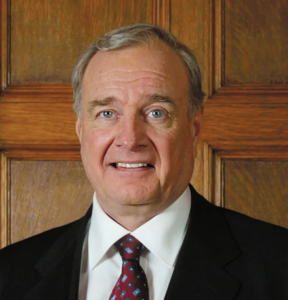
PAUL MARTIN Jr. also had polio. He is best known as the person who brought Canada’s finances under control by balancing budgets and preventing Canada from falling into financial disaster.
On the world scene, he is considered to be the architect of the G20. Previously the wealthiest countries, namely the G7, called the shots.
Like his father, he believed others had much to say and contribute and they should have a forum.
The G20 was originally a meeting place for finance ministers. It now includes the heads of government.
It is represented by 19 countries plus the European Union. They discus international, economic, environmental and sustainable development issues. The countries involved represent 66% of the world’s peoples covering 50% of the land mass. Other countries are often invited to participate in their meetings.
Martin, since ceasing to be the prime minister, has done much to educate Indigenous Peoples and has worked tirelessly on environmental issues, in particular efforts towards saving the rainforest in the Congo basin.
LLOYD AXWORTHY
LLOYD AXWORTHY too was minister of foreign affairs.
In 1996 he persuaded 122 (now 164) countries through the OTTAWA TREATY to stop the production, stock piling, transfer and use of anti-personal landmines. The treaty also called for their removal and created a mechanism to monitor the results and determine who is living up to the treaty.
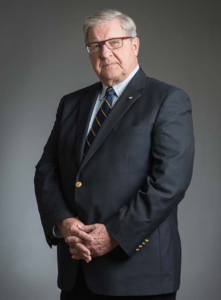
Before the agreement was signed there were an estimated 160,000,000 landmines. Now there are some 40 million plus, and this is decreasing every day.
Treaties often take 4/5 years to make. Through a new process they created called the Ottawa Process this was reduced to 14 months. This process has been used many times since, speeding up much needed action in many areas.
Major countries including the U.S., China, and Russia have not signed it, though the U.S. follows the spirit of it.
As a result of this treaty, many economies have been improved. Hundreds of thousands of children can now go safely to school, farmers can work their fields and a countless number of people can walk around without fear of being blown up by a landmine.
As a result of the Ottawa Treaty the International Campaign to Ban Landmines (ICBL) was awarded the Nobel Peace Prize. Lloyd was nominated and without a doubt should have been at least a co-winner.
In reaction to the genocide in Rwanda and the inability to intervene, Canada, led by Axworthy, set up the International Commission on Intervention and State Sovereignty.
This led to the U.N. in 2005 establishing a code of conduct called The Responsibility to Protect (R2P).
This policy, in brief, states every country has the responsibility to protect its people against genocide, war crimes, ethnic cleansing and crimes against humanity. Other states can help the affected state with this, and if any state fails to protect the people then other states can take appropriate action and override a nation’s sovereignty.
Since leaving politics Lloyd has been President of the University of Winnipeg, worked extensively with Indigenous Peoples and chaired many organizations. He is currently chair of the World Refugee and Migration Council.
MARY SIMON
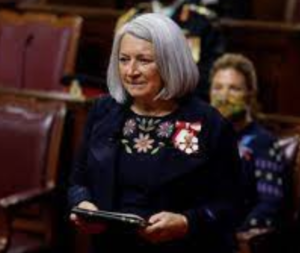
You will no doubt know the Arctic is changing fast, in large part because of a warming planet. In 1996 a number of countries including Iceland, Russia, Sweden, Finland, Norway, U.S.A., Denmark and Canada, all of whom had a common interest in the Arctic, came together.
Under the leadership of Canada, and in particular Canada’s current Governor General, The Honourable Mary Simon, an Inuit, the Arctic Council was formed. Its members also include six Indigenous groups.
The purpose of the Arctic council is to improve, social, economic and environmental conditions and improve awareness of the Arctic. Mary Simon was Canada’s ambassador to the Arctic and the Council’s First Chair.
The creation of this council and implementation of its views will have much to do with the future health of the planet.
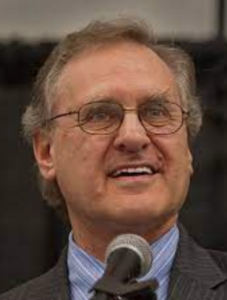
There are others that could be included in this list of Canadians who have made a significant contribution to the welfare of humans. These would include Stephen Lewis and his work on AIDS, and head of UNICEF; James Orbinski, President of Médecins Sans Frontiéres when they won the Nobel Peace prize; Drs. Banting and Best and their discovery of insulin.
Brian Mulroney and Joe Clark and their important role in bringing an end to apartheid.
Not to be forgotten are all of those Canadians who have been involved in taking and sponsoring refugees from Vietnam, Syria and other countries. I am sure this includes many of you.
As stated, few Canadians know of these amazing and incredibly important contributions to humankind by fellow Canadians. All were motivated by the cause and much of their work was voluntary.
While all of the people above have been recognized in many ways, their main reward is knowing they have helped make the world a better place and enhanced the lives of millions.
In this regard they are no different than any other volunteer, regardless of the volunteering activity.
If you are or have been a volunteer, you will know the feeling that comes from helping others.
Till next time,
Chris Snyder
Please pass this blog on to anyone you think would like to know or should know this information.
You May Also Like
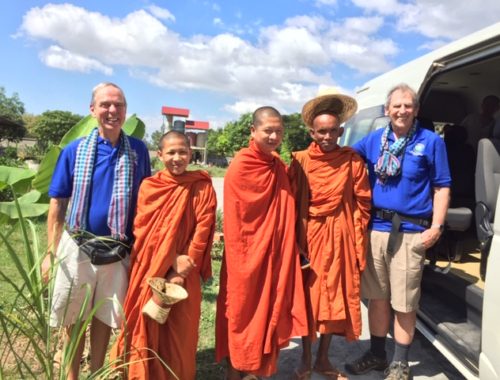
Cambodia!
January 13, 2019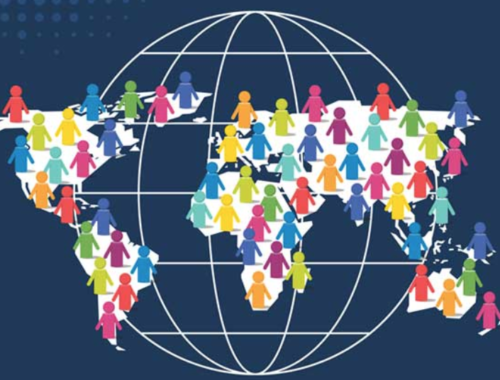
Getting Along and the Golden Rule
July 31, 2022